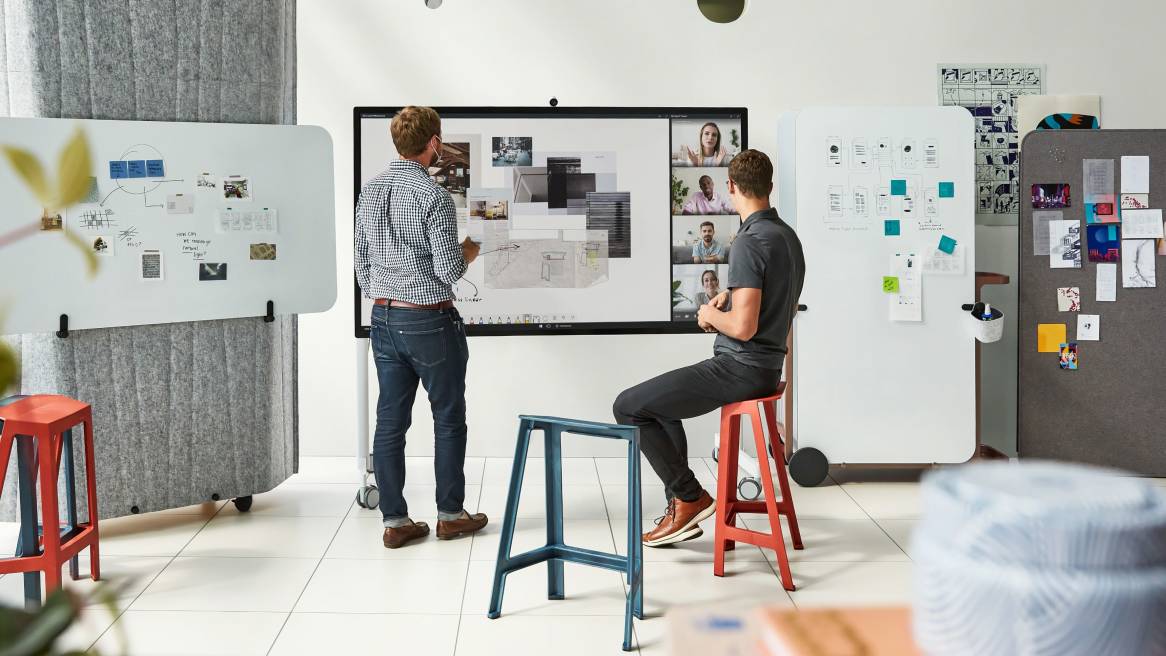Five Things Your Office Needs to Attract Gen Z + Millennials
Younger workers seek out the office as a resource, but need more out of their space.
Steelcase research shows younger workers want to be in the office more, but they need more out of the office. Five factors are key to keeping them.
Younger generations sometimes get a bad rep when it comes to workplace perception and now they’re shouldering a new blame: responsibility for ‘The Great Resignation.’ In fact, new Steelcase global research conducted with 5,000 employees globally shows Millennials and Gen Z workers are 65% more likely to leave their companies within the next six months when polled against Boomers and Gen X. Developing a better understanding of what younger generations are seeking may help us improve the work experience for everyone.
Surprising new Steelcase data discovered organizations may be missing an important element when it comes to Millennials and Gen Z workers — the office. Across the board, younger generations have a comparatively more favorable view of the workplace, what it can provide, and why they feel the need to be there. They look to the workplace as a resource: a place with the proper tools, higher level of technology access and the best place to be recognized for possible advancement. One caveat: The space and the culture need to provide more than the pre-pandemic office.
THE DRAW
To take it a step further, younger generations are approaching remote work policies with caution. They believe being out of the office more days could impact their future professional prospects negatively.
According to Steelcase research, 42% of younger generations view advancement as a key benefit to the office versus 31% of older generations.
Explore the Steelcase Global Report: Get key findings about what people value more now and how the workplace needs to change to support hybrid work.
Download the Steelcase Global Report
SPACE IS KING
Looking specifically at the value of space in the office, younger generations clearly prioritized the office environment compared to older generations. Seventy-four percent of younger generations said workspace is extremely or highly important, compared to only 69% of Boomers and Gen X. Perhaps even more poignantly, Millennials and Gen Z by far found the office to be more valuable than they did prior to the pandemic, when compared to older generations.
44% of younger employees say they perceive the office to be more valuable now, compared to 28% of older workers.
YOUNGER GENERATIONS WANT THE SAME THINGS AS OLDER WORKERS – JUST MORE
What that new environment looks like will vary, but Steelcase research uncovered five things younger workers say are most important in their office space. All of these tested significantly higher among younger generations.
1. People want more collaborative spaces
-Younger generations: 69% more important than pre-pandemic
-Older generations: 60% more important than pre-pandemic
2. Privacy
-Younger generations: 68% more important than pre-pandemic
-Older generations: 53% more important than pre-pandemic
Flexibility of Furniture
3. Flexibility of Furniture
-Younger generations: 59% more important than pre-pandemic
-Older generations: 45% more important than pre-pandemic
4. Sustainability of Office Furniture
-Younger generations: 58% more important than pre-pandemic
-Older generations: 38% more important that pre-pandemic
5. Storage Lockers
-Younger generations: 47% more important than pre-pandemic
-Older generations: 31% more important than pre-pandemic

WHY IT MATTERS
Simply put: Steelcase research finds that overall those who like working from their office more are significantly less likely to leave and are significantly more engaged, productive and connected to their company culture, regardless of generational differences. Millennials and Gen Z are the fastest growing segment of workplace talent, so it stands to reason that companies must act now to provide the culture and space needed to attract and retain those key performers.
Blackrock Financial CEO Larry Fink was direct in his 2022 Letter to CEOs that failing to recognize the importance of generational differences in the workplace, a shifting culture and meeting new needs in the office are tied directly to a company’s long-term outlook, and even financial viability.
“Workers demanding more from their employers is an essential feature of effective capitalism. It drives prosperity and creates a more competitive landscape for talent, pushing companies to create better, more innovative environments for their employees – actions that will help them achieve greater profits for their shareholders. Companies that deliver are reaping the rewards,” Fink writes. “Companies not adjusting to this new reality and responding to their workers do so at their own peril.”
Find out more and see the country-by-country breakdown of our research and new solutions for how to create a compelling workplace for this new era of hybrid work.
Download the Steelcase Global Report



